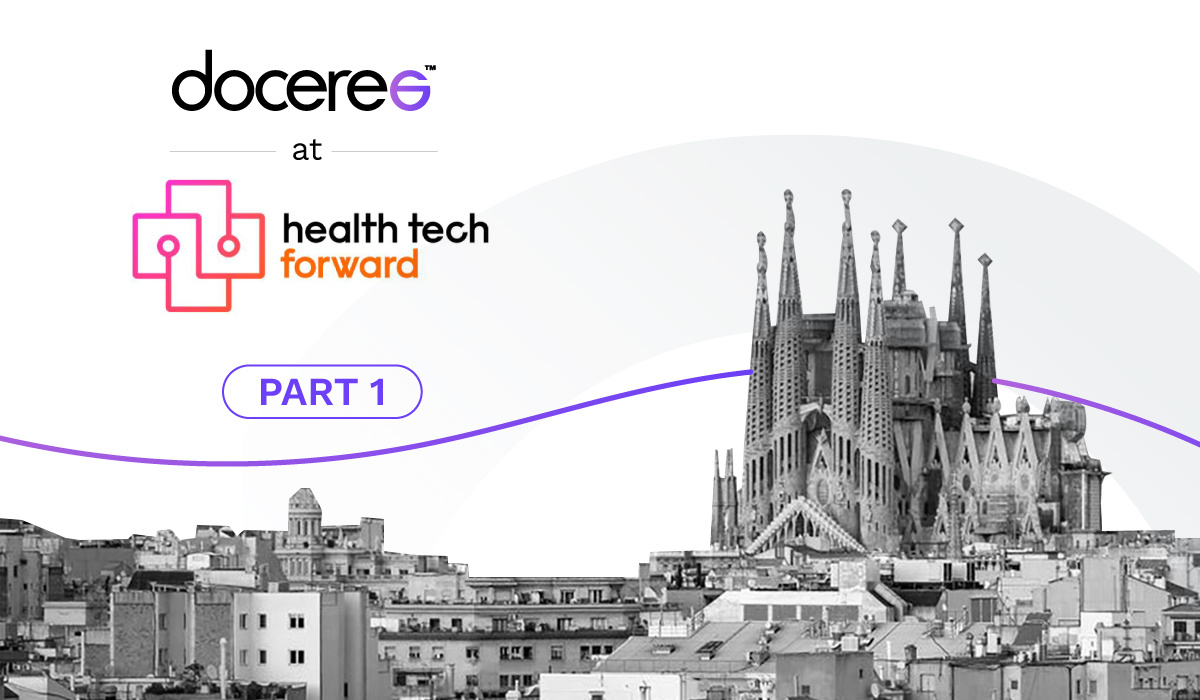
AI-Driven Transformation in Healthcare: Key Takeaways from Health Tech Forward 2025 Part-1
This week, Health Tech Forward - Europe’s leading event for health tech innovation and investment - brought together global leaders from the digital health and wellness industry to explore the key trends shaping the future of healthcare. Topics ranged from patient-centered care and generative AI to the evolution of hospitals in the digital age.
Doceree was proud to be part of this marquee event, cohosting two insightful roundtable discussions with Finn Partners. These sessions explored the transformative impact of AI on patient care and customer engagement in the healthcare industry.
In part 1 of a two-part series, we provide a detailed recap of the key takeaways and strategic insights from the first roundtable sessions.
Why Health Tech Forward Matters?
Over 1,000 attendees gathered in Barcelona for two days of impactful 1:1 meetings, insightful keynote speeches, engaging panel discussions, and interactive fireside chats. The event tackled key topics such as consumer-centric care, the evolution of digital-era hospitals, balancing data transparency and innovation, and advancements in drug development and innovation.
AI Revolutionizing Patient Engagement: Key Takeaways from Roundtable 1
The conversation delved into key topics, including navigating shifting patient expectations in a technology-driven world, striking the right balance between AI and human interaction, and implementing digital front-door strategies to enhance patient access and streamline the care journey. The team shared real-world success stories, explored challenges, and highlighted the opportunities providers encounter when adopting AI-driven engagement solutions.
For over an hour, healthcare professionals from diverse backgrounds like pharmaceuticals, health tech & advertising industries collaborated with Doceree and Finn Partners to explore these critical themes and exchange meaningful insights.
Key Themes Explored:
Balancing Automation and Human Touch
Integration Challenges
Overcoming challenges in integrating HCP and patient engagement technologies into EHRs was a key focus. Participants suggested solutions like improved interoperability and training to streamline workflows. Integrating these technologies into clinical workflows provides physicians with timely medication information and patient affordability program eligibility easily, reducing administrative tasks and improving care. However, addressing data privacy, adoption issues, and clinical relevance is vital for success in this space.
Digital Front Door Strategies
Leveraging technology to enhance initial patient interactions—such as AI-powered self-check-in portals—has emerged as a crucial strategy for building trust and reducing administrative burdens. Participants emphasized the value of seamless digital care pathways in improving access, engagement, and overall health outcomes. Innovations like remote therapeutic monitoring (RTM) have further advanced adherence tracking and boosted patient satisfaction. These advancements underscore the transformative potential of a well-integrated digital front door in reshaping healthcare experiences and delivering better outcomes.
Personalization at Scale
Final Thoughts
Looking ahead, AI's potential to revolutionize healthcare experiences and elevate care quality continues to grow. With AI as a powerful ally, the future promises improved patient outcomes and stronger, more meaningful connections within the healthcare ecosystem.
Stay tuned for part 2 of our Health Tech Forward recap, in which we'll recap our day 2 roundtable discussing AI and engagement from the perspective of pharmaceutical and life science professionals.